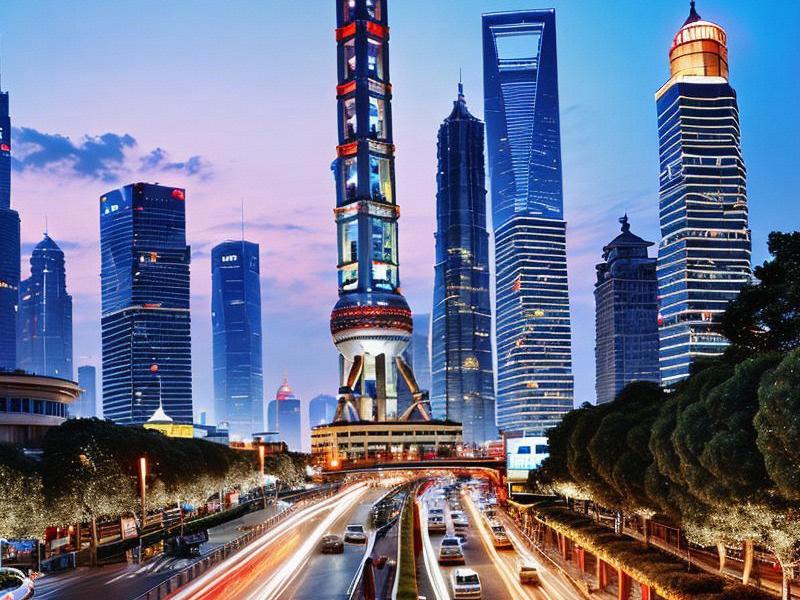
Shanghai, often referred to as the "Pearl of the Orient," is a city that seamlessly blends the old with the new. Its rich history dates back to the 19th century when it was opened as a treaty port following the First Opium War. Over the decades, Shanghai has evolved into a global financial center, a cultural melting pot, and a hub for trade and innovation.
The city's strategic location at the mouth of the Yangtze River has made it a natural gateway for commerce and culture. This position has not only facilitated the flow of goods and services but also the exchange of ideas, traditions, and lifestyles between Shanghai and its surrounding regions.
Culturally, Shanghai has been a significant influence on the surrounding provinces and cities. The city is renowned for its unique blend of traditional Chinese culture and Western influences. This synthesis is evident in the city's architecture, cuisine, fashion, and arts.
The Bund, a historic waterfront area in Shanghai, is a testament to the city's colonial past and its architectural diversity. The juxtaposition of Gothic, Baroque, and Romanesque styles alongside modern skyscrapers showcases the city's ability to harmonize different cultural elements. This architectural heritage has inspired many cities in the surrounding regions to preserve and celebrate their own historical landmarks while embracing modernity.
夜上海419论坛 Shanghai's cuisine, often referred to as "Haipai" cuisine, is another cultural export that has gained widespread popularity. Known for its delicate flavors, precise cooking techniques, and artistic presentation, Haipai cuisine has influenced the culinary traditions of neighboring provinces. Dishes such as xiaolongbao (soup dumplings), shengjianbao (pan-fried dumplings), and lion's head meatballs are now enjoyed throughout China.
In the realm of arts and culture, Shanghai has been a breeding ground for innovation and creativity. The city is home to numerous museums, galleries, theaters, and music venues that showcase a wide range of artistic expressions. The Shanghai International Film Festival, one of the oldest and most prestigious film festivals in Asia, attracts filmmakers and audiences from around the world. This cultural vibrancy has inspired neighboring regions to invest in their own cultural industries and promote local art forms.
Economically, Shanghai's influence on the surrounding regions is equally profound. As China's largest city and a key player in the global economy, Shanghai serves as a major hub for trade, finance, manufacturing, and technology. The city's well-developed infrastructure, including its international airports, seaports, and high-speed rail network, facilitates the efficient movement of goods and people.
The Yangtze River Delta region, which includes Shanghai and the neighboring provinces of Jiangsu and Zhejiang, is one of the most economically dynamic areas in China. This region accounts for a significant portion of the country's GDP and is known for its advanced manufacturing, high-tech industries, and vibrant service sectors. Shanghai plays a central role in driving the economic development of this region by providing financial services, technological expertise, and market access.
上海龙凤419油压论坛 The city's free trade zones, such as the Shanghai Pilot Free Trade Zone, have attracted numerous multinational corporations and foreign investors. These zones offer favorable policies and streamlined administrative procedures, making them ideal for conducting business. The success of these free trade zones has inspired other cities in the surrounding regions to establish their own economic zones and promote trade liberalization.
Shanghai's role as a financial hub is another aspect of its economic influence. The city is home to the Shanghai Stock Exchange, one of the largest stock exchanges in Asia, and the Chinese yuan's offshore trading center. These financial institutions provide essential services for businesses and investors in the region, facilitating capital flow and investment.
The city's technological advancements have also had a significant impact on the surrounding regions. Shanghai is a leader in innovation and entrepreneurship, with numerous research institutions, technology parks, and startup ecosystems. The city's focus on developing high-tech industries, such as artificial intelligence, biotechnology, and green energy, has spurred innovation in neighboring provinces.
上海娱乐联盟 For example, the Suzhou Industrial Park, located near Shanghai, has become a major hub for high-tech manufacturing and R&D. This park has attracted numerous multinational corporations and startups, creating a thriving ecosystem for innovation and collaboration. Similarly, the Ningbo-Zhoushan Port, one of the busiest ports in the world, has benefited from Shanghai's technological expertise and infrastructure, enhancing its efficiency and competitiveness.
The cultural and economic influence of Shanghai extends beyond the Yangtze River Delta region. The city's global connectivity and reputation as a cosmopolitan metropolis have made it a magnet for international talent, businesses, and tourists. This has created opportunities for collaboration and exchange with other cities and regions around the world.
In conclusion, Shanghai's cultural and economic influence on the surrounding regions is profound and multifaceted. The city's unique blend of traditional Chinese culture and modern urbanization has inspired neighboring provinces to preserve and celebrate their own cultural heritage while embracing innovation and modernity. Economically, Shanghai serves as a hub for trade, finance, manufacturing, and technology, driving the development of the Yangtze River Delta region and beyond.
As Shanghai continues to grow and evolve, its influence on the surrounding regions will undoubtedly persist and expand. The city's ability to harmonize tradition with modernity, foster innovation, and promote collaboration will ensure its continued relevance and impact on the global stage.
